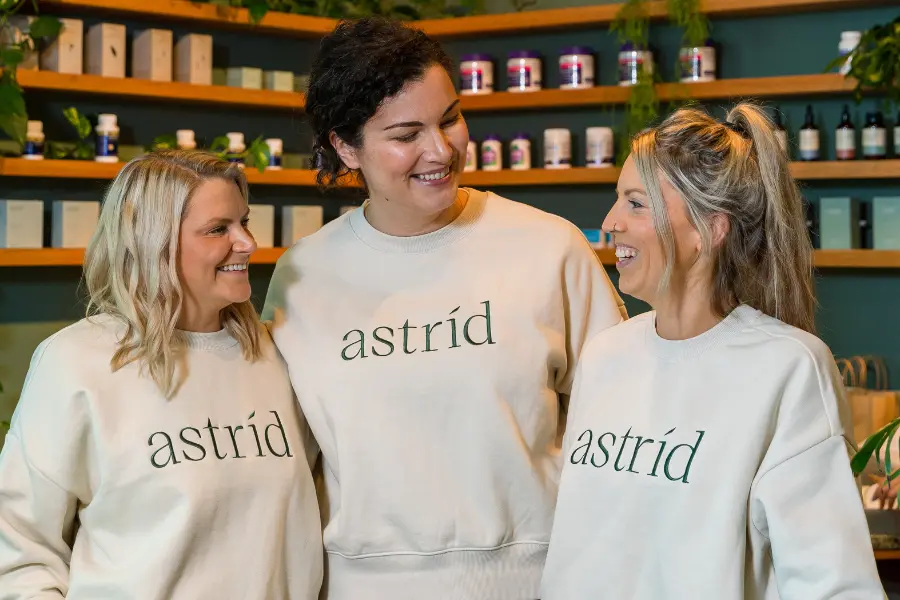The consequences of poor sleep are far-reaching and there is an undeniable link between sleep and our physical, mental, and cognitive health.
This blog aims to delve into the significant role of sleep in our lives and how alternative therapies can impact this essential bodily function.
Join us in understanding how natural remedies can enhance well-being towards a healthier, more balanced life.
Sleep Cycles: What’s Happening When We Sleep
Think of sleep as a nightly mini-vacation for your brain and body, getting you ready for whatever the next day throws at you.
When we hit the sack, we don’t just switch off; we go through different phases, from light napping where someone nudging you could easily wake you up, to a deep snooze that’s all about healing and recharging. For the first half hour or so, you’re in a light sleep zone where your brain starts to chill and your muscles relax, but you’re still on the edge of waking up easily. After this warm-up, you dive into the really good stuff: deep sleep. This is the repair workshop of your sleep cycle, where your brain gets busy sorting memories, making sense of the day’s learning, and even sparking creativity through dreams.
Basically, every night’s sleep is like hitting the reset button, giving your brain and body the downtime they need to sort through emotions, lock in new info, and get you ready for a new day.
Lacking Sleep: What Sleep Deprivation Really Means
Ever feel like no matter how much coffee you drink, you’re still dragging your feet? That bone-deep tiredness might be more about your z’s than your caffeine intake. From tossing and turning for just one night to the grind of never getting quite enough sleep, there’s a whole spectrum of sleep woes that can leave you feeling fried.
Our daily routines, the stress we carry, and yes, even binge-watching your favourite series late into the night, can all mess with our shut-eye. Recognising these sleep-stealers is step one in taking back your night.
But here’s the kicker: skimping on sleep does more than just make you yawn all day. It sets off a domino effect that can mess with both your body and brain in the short term and down the line. For starters, not getting enough sleep cranks up the odds of serious health issues like heart disease, stroke, diabetes, and even packing on extra pounds. It’s like your brain starts to get foggy, too, making it harder to remember things, focus, make decisions, or react quickly.
And it’s not just about feeling physically tired. The emotional hangover from poor sleep is real, leading to crankiness, anxiety, a drop in your body’s germ-fighting powers, and a heavier risk of feeling down in the dumps. Plus, your muscles aren’t as strong, and your coordination takes a hit, making everything from typing to tying your shoes feel like a challenge.
In short, getting enough quality sleep isn’t just about dodging yawns; it’s about keeping your mind sharp, your emotions in check, and your body feeling good.
Not so Restful Sleeping: Sleep Disorders and Insomnia
We’ve all been there – staring at the ceiling at 3 a.m., wondering why sleep seems like a distant dream. It turns out, a lot of us in Australia are in the same sleep-deprived boat. Nearly half of us are wrestling with sleep troubles, and about 1 in 10 Aussies are dealing with insomnia at any given moment. It seems to sneak up more on women and the older crowd.
Insomnia can look like a lot of things: maybe you can’t fall asleep, or you wake up and can’t drift back off, or you’re up way too early. And it’s not just a one-size-fits-all kind of deal; insomnia comes in two main types – the short-term and the long-haul version.
Short-term insomnia could pop up because of stress, travelling across time zones, or even if your bedroom’s too hot or too noisy. Then there’s chronic insomnia, which is when the sleep struggle lasts for months. This could be down to:
- Primary sleep disorders, including the big-name insomnia, chronic fatigue syndrome, or sleep apnea.
- Secondary insomnia, which is when another health issue, like asthma or depression, messes with your sleep.
- Idiopathic insomnia, a fancy way of saying, “We really don’t know why you can’t sleep.”
The world of sleep disorders is wide and complex, showing just how tricky it can be to figure out and fix our sleep troubles.

Natural Therapies, and Restful Sleep
When it comes to natural remedies and sleep, CBD (cannabidiol) is a topic that’s catching some interest, but it’s important to approach it with a balanced view. The research on CBD’s effect on sleep is still in its early stages, and while there are some positive signs, a lot more investigation is needed to understand its full impact.
So far, early studies suggest CBD might help some people sleep better by reducing anxiety and stress. This could help quiet the mind and make it easier to fall asleep and stay asleep. There’s also some evidence that CBD could help with pain relief, which might be beneficial for those whose sleep is disrupted by discomfort, leading to potentially fewer wake-ups during the night. CBD seems to interact with our body’s endocannabinoid system, which has a role in managing our sleep patterns, among other things.
However, it’s crucial to note that these findings come from preliminary research, including a small study where 71% of participants felt their sleep improved with CBD use. Despite this, about 39% of them were able to reduce or stop their sleep medication, and only 21% experienced side effects that were not severe enough to make them stop using CBD.
But here’s the thing: CBD isn’t a cure-all for sleep problems. It should be seen as one option among many, not a replacement for traditional sleep treatments. The need for more research can’t be overstated, as can the importance of talking to healthcare professionals to find the right approach for you.
Pharmacists play a vital role in guiding the use of CBD for sleep, ensuring that it’s used safely and effectively, especially in conjunction with other treatments. This includes monitoring for any potential interactions and helping manage dosages.
Sleep Hygiene: Getting a Good Night’s Rest
Most people know the basics to getting a good night’s sleep, but it’s good to be reminded that there are things we can do to encourage a restful sleep.
- Bedtime routines: Crafting a relaxing bedtime routine that works to support the nervous system to relax. For some people, that involves relaxation techniques like deep breathing or meditation, reading a book, writing in a journal, a skincare routine, or gratitude practice.
- Environment: Surroundings have a big impact on feelings so aim to create an environment that encourages sleep – ideally dark, quiet, cool, and free from any overwhelming clutter.
- Go tech free: To further promote restful sleep, limit screen time for at least an hour before bed. Regular physical activity is beneficial, but it’s important to avoid strenuous exercise close to bedtime.
- Relaxation: Managing stress through relaxation techniques and addressing any underlying stressors can help ensure a more peaceful night’s sleep.
Sleep is an important practice for every person so if you know someone struggling with getting restful sleep, encourage them to speak to a health professional to receive dedicated care tailored to your specific needs.
Understanding and compassionately addressing our patients’ wellbeing, which can include sleep disorders, is at the core of our mission at Astrid. We recognise the profound impact these conditions can have on daily life.
At Astrid, we’re dedicated to enhancing our patient’s wellbeing. We believe in the power of education, access, and advocacy in navigating the world of natural therapies.
Contact the Astrid team for an elevated patient experience through telehealth and discuss the transformative power of natural therapies and the potential impact on sleep.
